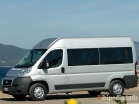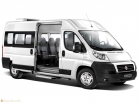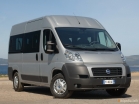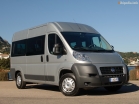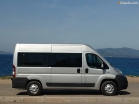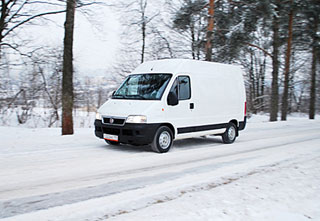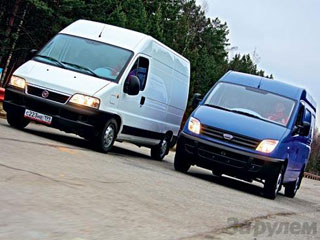Test drive Fiat Ducato Mikroavtobus since 2010 minibus
Ducat
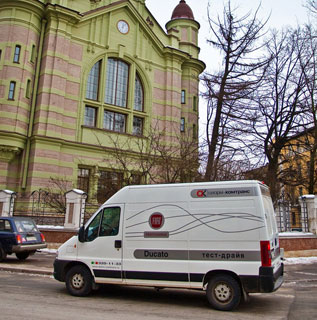 A few weeks before the freight Fiat Ducato, they threw a cry: who needs to transport anything? Agree: the best way of the commercial freight vehicle test is thrown into the body of the real cargo, evaluate the ease of loading and unloading and at the same time estimate how many unoccupied places will remain.
A few weeks before the freight Fiat Ducato, they threw a cry: who needs to transport anything? Agree: the best way of the commercial freight vehicle test is thrown into the body of the real cargo, evaluate the ease of loading and unloading and at the same time estimate how many unoccupied places will remain. As luck would have it, no one needed to take anything. Having missed the real way to earn in difficult crisis times, the wheels spent a day in the company of cargo fiat Dukato. Empty
Cargo Italians produced in Russia are available with three body types: with a short wheelbase and a low roof, with a medium base and a middle roof, as well as with a long base and medium roof.
We went to the test for the test the most averaged version: with a middle roof and a similar wheelbase in Medium configuration. It turns out that in order to manage Fiat Ducato, it is enough for the driver to have a driver's license of category B. Moreover, this is relevant for any modification, since the total mass of the most difficult modification of the truck does not exceed 3,500 kg.
Sitting into the cabin is much more difficult than plunging into a passenger car: the cabin is high above the ground, and the step (especially in winter) is quite slippery. The view from the driver’s place can shock the driver of the car, but is quite familiar to experienced trucks. The steering wheel is parallel to the ground, landing as on a stool, instead of a salon of the rear view, emptiness. Still: if there was a mirror, it would show the steel wall of the luggage compartment painted in the color of the body.
The windows work unusually: a short press on the button causes complete automatic lowering the glass. And double pressing, on the contrary, allows you to accurately measure the level of the window gap. The parking brake is located very low, and not on the right, but to the left of the driver, so first you need to find it, and then, bent pretty, completely lower it. Unknown.
Side mirrors are large, but they need to be adjusted manually, as on old cars by pressing the edge. It is especially convenient to set up the right mirror that the rear -view mirrors are divided into two sections, this allowed the developers to minimize the dead area.
But you do not need to reach for the gearbox lever. The ideal for racers-sportsmen: it is located 10 cm from the steering wheel, and moving the hand to change the transmission takes a minimum time. The transmission, by the way, works clearly, and the transfer numbers are selected so that even with energetic acceleration, it is often not necessary to operate with a lever.
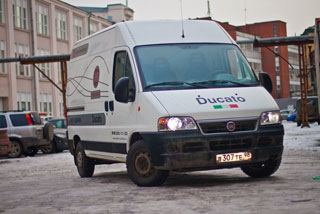 The 2.3-liter 110-horsepower turbodiesel engine would look great in a car. In dynamic driving mode in the city, fuel consumption did not exceed 9 liters of diesel fuel per hundred. It works quietly, vibrations are noticeable, but not annoyed.
The 2.3-liter 110-horsepower turbodiesel engine would look great in a car. In dynamic driving mode in the city, fuel consumption did not exceed 9 liters of diesel fuel per hundred. It works quietly, vibrations are noticeable, but not annoyed. True, it was not possible to understand how much the engine would cope with the load: the hardest thing that was in the back during the test, a tripod and video camera. But even with two passengers, the car easily managed to compete in the city stream with some unsportsmanlike cars.
As mentioned above, Ducato offers three versions of the wheelbase. If in numbers, then it can be 2 850, 3 200 and 3 700 mm. Depending on the height of the roof, the internal space of the cargo compartment can fluctuate from 1,441 to 1881 mm along the vertical axis. The width of the doorway reaches 1,562 mm.
For the convenience of loading and unloading, the rear doors open 90 degrees (although a version with doors that opens for all 270 degrees can be ordered for a fee), and a sliding door with a width of 1,265 mm is provided on the sidewall. Cargoers will probably appreciate the fact that the side door allows you to load European captals (1,200 mm wide) without interference, and the loading height is small for this class of 570 mm.
Author: Alexander Korobchenko
Photo: Roman Ostanin
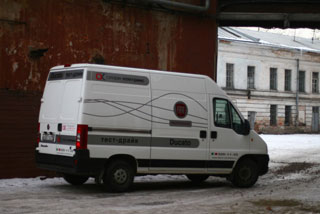
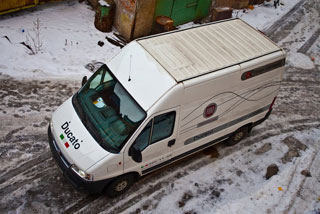
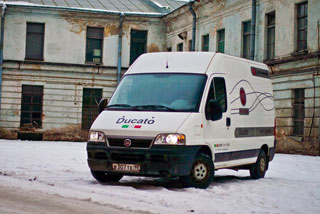
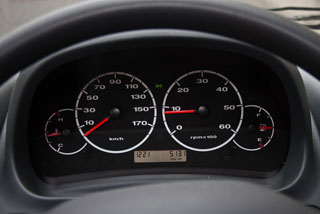
Source: Wheel magazine [March 2009]

